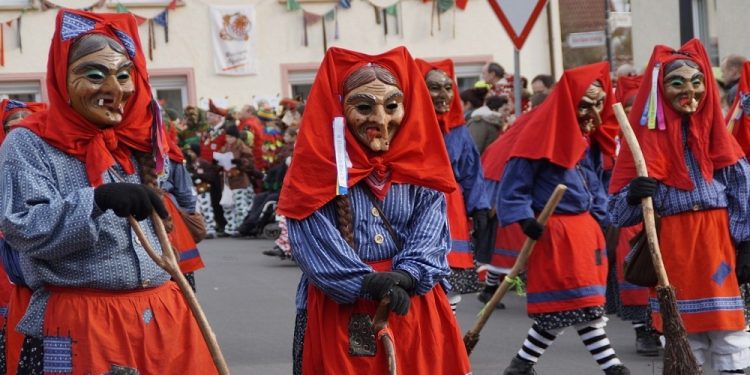
Shrove Monday
Shrove Monday is a Christian observance that falls on the Monday before Ash Wednesday annually. It’s part of the Carnival celebrations that take place in many different places around the world, including Austria, Germany, and Denmark.
In these countries, it’s known as Rosenmontag, which means Rose Monday. In Denmark, it’s a part of Fastelavn, and in Great Britain, it’s known as Collop Monday—a name given to it because of the tradition of eating collops (bacon) and eggs. In other countries, it’s known as Carnival Monday, Fat Monday, or Lundi Gras.
The History of Shrove Monday
Shrove Monday dates back to the Middle Ages in association with Shrovetide celebrations. The word shrove comes from the English word ‘shrive,’ a word that means to ask for absolution for one’s sins. Shriving was the practice of English Christians receiving absolution before the beginning of Lent.
Outside of liturgical traditions, Shrove Monday and Shrove Tuesday are not widely used in Canada or the U.S. Many of the traditions that form the basis of Carnival in countries across Europe are believed to have originated with the ancient Romans over 2,000 years ago.
In Roman tradition, it was customary for servants to play the role of master for the day. This is where much of the ridiculing and mocking of public figures comes from. These traditions were then combined with traditional Christian fasting that was done for Lent.
Facts About Lent & Shrove Monday
Since Shrove Monday is observed before Lent, we thought we’d cover some interesting facts about Lent below.
- The 40-day fasting period honors the time that Jesus Christ spent in the wilderness fasting before beginning his public ministry.
- Sundays do not count as part of the Lenten fast, so there are actually 46 days between Ash Wednesday and Easter.
- Pretzels are considered the perfect Lenten snack because they are traditionally made without eggs, butter, or lard.
- The Filet-O-Fish was created by McDonald’s to cater to the millions of Catholics abstaining from meat during Lent.
Observing Shrove Monday
Most Shrove Monday celebrations are reflected in the dishes that are prepared and served on that day. Since it’s traditional for people to give up meat for Lent, Shrove Monday was a day for people to consume all of the meat in the home so it wouldn’t spoil over the next 40 days.
That’s why in Great Britain, this holiday is known as Collop Monday because collop bacon is eaten on this day with eggs. In Germany, there are parades, and bratwurst or Krapfen (a kind of doughnut) are eaten, as well as pretzels. There are also parades and events where politicians are ridiculed. In other countries, Shrove Monday is observed with plenty of parades and other public celebrations.








